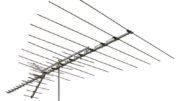For your great-grandparents, he was the news. Edward R. Murrow reported on the invasion of major cities in World War II, but more importantly, he was responsible for the invention of television news, not as it is today but as we want it to be. In the 75 or so years since Murrow read the news on CBS, the very idea of news has changed so much that I doubt he’d even recognize it.
Who was Edward R. Murrow?

When Egbert Murrow was born (he would later change his name, and who would blame him), there was no radio, no television, and no internet. In 1908 most Americans didn’t even have electricity. Starting from humble beginnings, he attended college in 1926, which was rare at the time. Majoring in speech, Murrow was already a popular and charismatic figure but didn’t even think about being an on-air personality at that point.
The war years
Although he originally started working for CBS as an administrative type, he found himself in the middle of the action in 1938 while in Europe. It wasn’t long before he began first-person reporting of the emerging war, and he gained a reputation for being right where the action was. Although live reporting was practically impossible at the time, his reports were as timely as was possible at the time.
His television career
After the war, Murrow was a celebrity. He accepted an offer from CBS management to become Vice President of the news division, which he organized around the idea of honesty and integrity. As radio gave way to television, it was CBS News that drove the very character of on-screen reporting.
Murrow pioneered live coast-to-coast broadcasting and investigative journalism. He stood up to government and exposed the wrongs that needed to be righted, but always with respect for the offices of government he investigated. In 1954, when America was in the height of anti-Communist fervor, he stepped forward and exposed the one man at the center of the madness and in doing so changed the course of history.
This may sound a little weird
Mr. Murrow had a strange idea about news programs, too — that they should be short, to the point, and accept no advertising. To run commercials meant sacrificing integrity. That wasn’t really popular with his bosses, and neither was his idea that if you’re presenting verifiable facts, there’s no need to invite someone on TV to rebut them.
Check him out in action. He may seem oddly formal today but that’s the way the news was presented back then:
Even better, read his words spoken in 1958. Here’s a short excerpt but the whole text is here for you (as quoted in the 2005 film Good Night and Good Luck) and it’s one of the most patriotic things you’ll ever read.
This instrument can teach, it can illuminate; yes, and it can even inspire. But it can do so only to the extent that humans are determined to use it to those ends. Otherwise it is merely wires and lights in a box. There is a great and perhaps decisive battle to be fought against ignorance, intolerance and indifference. This weapon of television could be useful.
The later years
Sadly, the era of integrity in news was short-lived. By the early 1960s, Murrow-style reporting was already falling out of favor. He left CBS at that time, but sadly did not enjoy his retirement. A longtime smoker, Murrow died in 1965 at the age of 57 of lung cancer.
What passes for “news” today may be entertaining and it may be engaging. There’s no doubt of that. But, it’s far from the pure reporting and noble ambitions pioneered by the CBS team in the mid-20th century. There’s still excellent work being done, of course, but it all too often seems overshadowed by partisan hackery. It’s a good thing Ed Murrow passed away sixty years ago; the state of TV news today would kill him.





